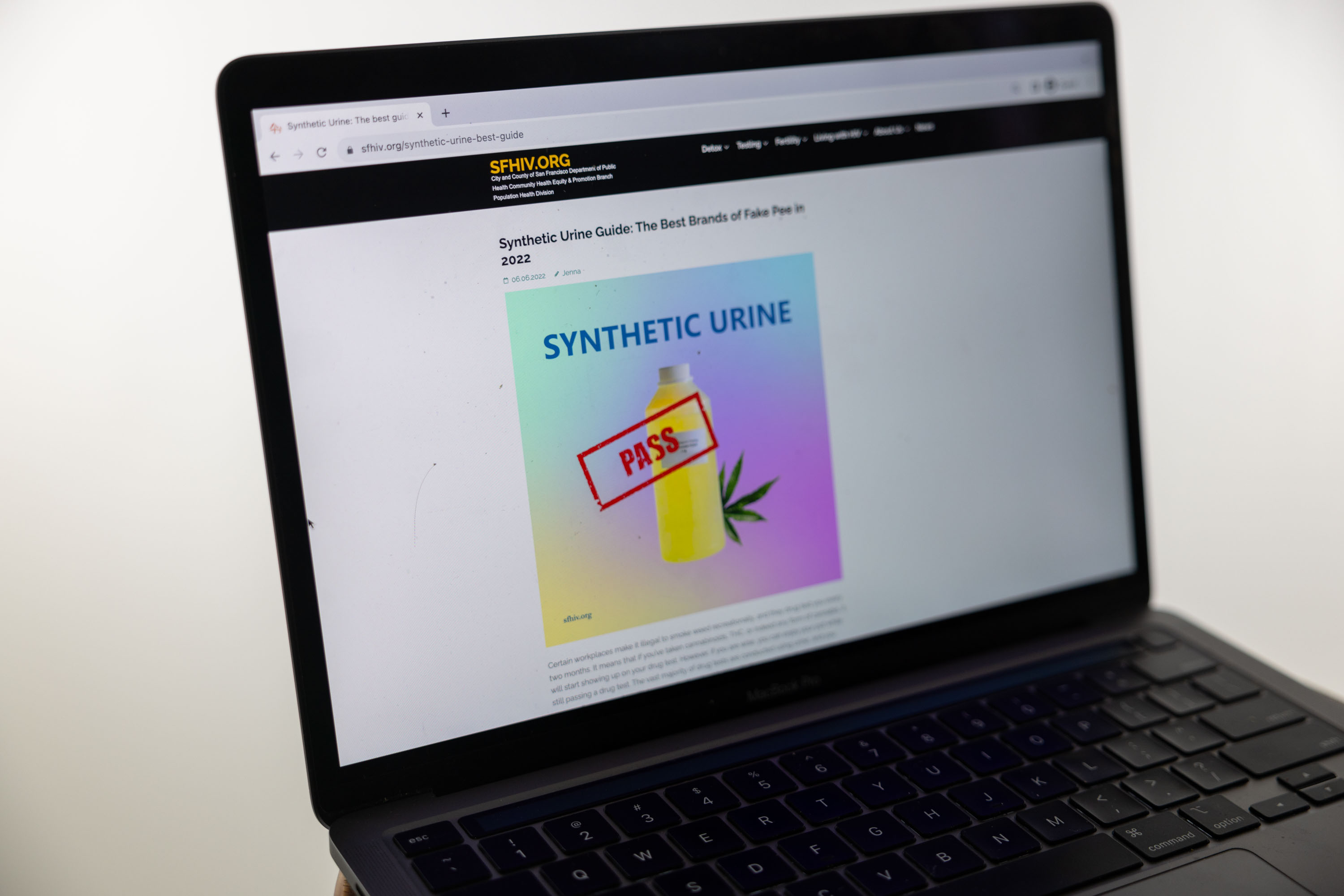San Francisco health department officials on Tuesday confirmed an “unfortunate” situation in which a Ukraine-based scammer spent nearly two years impersonating the city’s HIV resources website to sell sex pills and kits to beat drug tests.
The website, SFHIV.org, served as part of the Department of Public Health’s Community Health Equity and Promotion branch, city officials said. The Wayback Machine, an internet archive, shows the domain name was first registered in 2004. But in 2021, the city “retired” the website, allowing an unknown person in Kyiv, Ukraine, to take control of the site and rebuild it to appear as if it was still a San Francisco city and county operation, according to online records.
The website continued to claim it was San Francisco’s HIV/AIDS resource hub but began promoting products like synthetic urine and kits to avoid testing positive for drugs, as well as pills that it claimed would increase sperm count and help men “ejaculate up to 500% more.”
The Standard published a story detailing the scam on Friday, and the website was taken down by Saturday.
Internal search results on the city’s official Department of Public Health website linked extensively to the spoof site, which also featured Dr. Phillip Coffin, the city’s director of substance-use research, and other top officials as contributors.
A search of the health department’s website using terms like “drugs,” “detox” and “HIV” would direct people to the scam, and thousands of websites—including the federally funded Centers for Disease Control and Prevention, NPR and the San Francisco Chronicle—continue to link to the SFHIV.org website, according to Moz, a backlink checker.
“Our goal is to provide accurate and timely health information and resources,” officials for the Department of Public Health said in a statement Tuesday, five days after being contacted for comment by The Standard. “It is unfortunate that the new domain holder misrepresented the Department of Public Health, and we have been working with the City Attorney's Office.”
Jen Kwart, a spokesperson for the City Attorney's Office, said that the city “strives to provide the public with accurate information” and there is no indication any San Francisco officials had any role in the spoof website.
“We appreciate this being brought to our attention and are happy to see that the imposter website has been taken down,” Kwart said.
Supervisor Matt Dorsey, who is HIV positive, called the website a “cautionary example” of what happens when city departments create new web domains. He suggested that the city should look into streamlining its operations when it comes to domain names.
“If these kinds of domains lapse into dormancy, they can be taken over by nefarious operators, and that appears to be what happened here,” Dorsey said.
“It is such a rabbit hole. It’s so bizarre,” said Michael Scarce, an HIV-positive health activist and writer in San Francisco who came across the website while doing research.
“It raises some important privacy concerns,” Scarce added, “because if someone is visiting what they think is an official city website and they ask where they can get tested for sexually transmitted infections, the website will have access to the IP address for whoever is making those queries. And that’s maybe something they wouldn’t ask for their provider.”
Scarce suggested the potential for fraud abuse could also extend to other issues, such as the scammer editing the Department of Public Health’s Wikipedia—an edit linking to SFHIV.org’s webpage for syringes was dated after the city relinquished control of the site. Scarce also noted the domain name could be used to send spoofing emails.
“It also gives someone the ability to create an email account and send messages requesting confidential information,” he said.
As of Saturday, SFHIV.org featured an image of a cartoon pig with a hat on its head and the Earth resting in its hooves over a message that read: “sfhiv.org has been registered at Porkbun but the owner has not put up a site yet. Visit again soon to see what amazing website they decide to build.”
